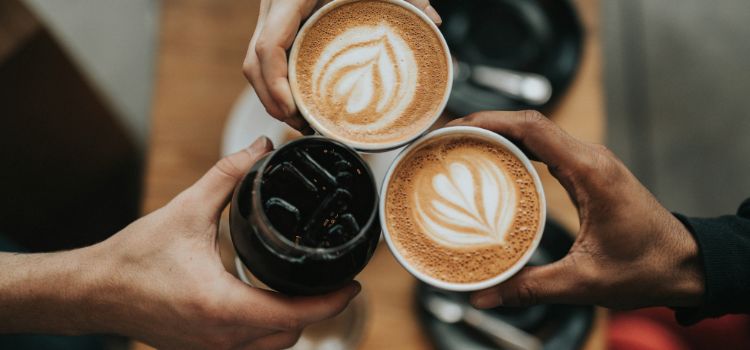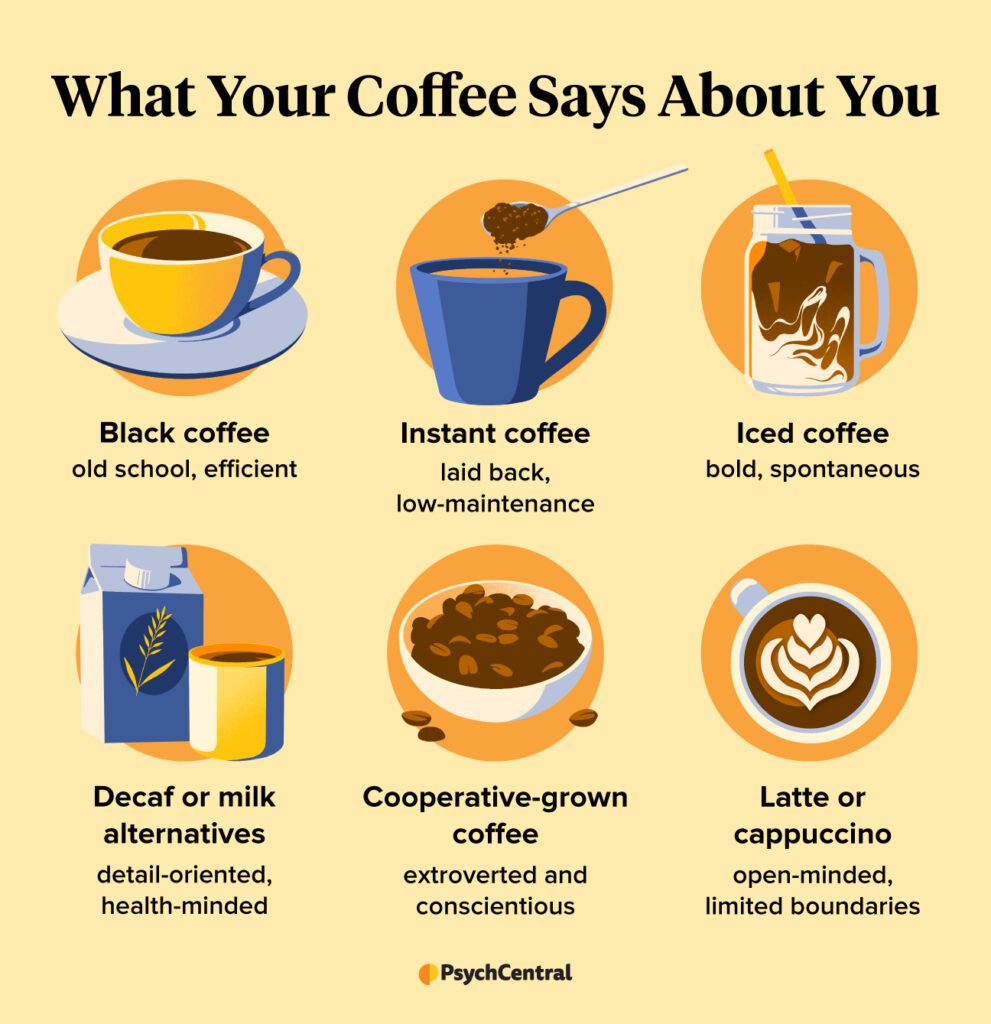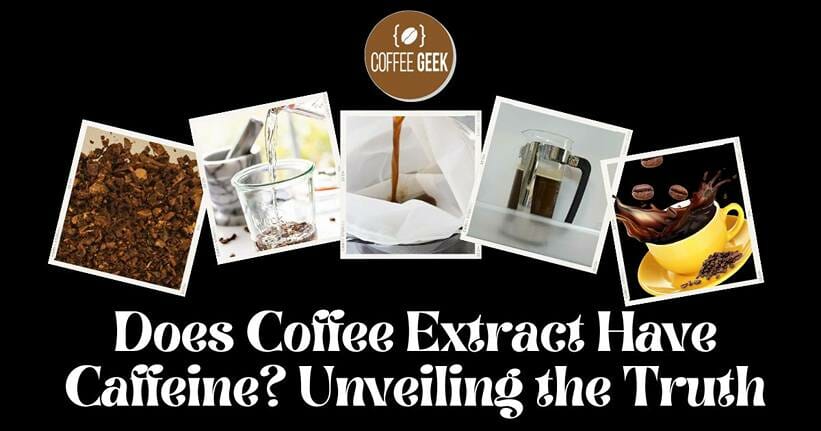Yes, cappuccino does contain caffeine. A typical serving holds about 63 mg of caffeine.
Cappuccino is a beloved Italian coffee drink known for its harmonious blend of espresso, steamed milk, and foam. Often enjoyed for its rich flavor and energizing properties, this classic beverage combines the bold taste of espresso with the creaminess of milk.
Ideal for coffee enthusiasts seeking a milder alternative to a straight espresso, a cappuccino offers a moderate caffeine kick that’s perfect for morning or mid-day sipping. It’s a popular choice at cafes worldwide, not only for its stimulating effects but also for the artful presentation often created with the milk foam on top. Whether you’re starting your day or need an afternoon pick-me-up, a cappuccino is both a delightful treat and a source of caffeine.

Cappuccino Basics: What’s In The Cup?
A cappuccino is a popular coffee drink with espresso, steamed milk, and milk foam. These are the three key ingredients. Yes, cappuccino contains caffeine because of espresso. Each espresso shot typically has about 63mg of caffeine. A standard cappuccino uses one or two shots. This means the total caffeine content can range from 63 to 126mg.
The brewing method for espresso affects the caffeine amount. Fine grounds and high pressure in espresso machines extract more caffeine. Time is also crucial. A longer extraction can lead to more caffeine in the cup. But, too long can make the coffee bitter. So, baristas aim for a balance to make the perfect cup.
Caffeine Content: Comparing Coffee Beverages
Cappuccino is a popular espresso-based drink, loved for its rich flavor. It typically has one shot of espresso mixed with steamed milk and foam. The presence of caffeine in a cappuccino is inevitable, as espresso is its core ingredient. Different sizes of cappuccino do indeed affect caffeine content.
A standard cappuccino comes in a small size with a single shot of espresso. Larger sizes simply add more milk or foam, not caffeine. For example, a medium or large cappuccino will still only contain one espresso shot unless extra shots are requested.
| Coffee Type | Typical Caffeine Content |
|---|---|
| Espresso (1 oz) | 63mg |
| Cappuccino (Small) | 63mg |
| Drip Coffee (8 oz) | 95mg |
| Latte (8 oz) | 63mg, similar to cappuccino |
Cappuccino’s Caffeine: Myths Vs. Facts
Cappuccino does contain caffeine, a truth many coffee lovers know. A typical cup has about 85 milligrams of caffeine, which is less than a standard coffee. This is because a cappuccino is made with equal parts espresso, steamed milk, and milk foam, diluting the caffeine content.
Some people think decaf cappuccino is caffeine-free. Yet, decaf versions carry small caffeine amounts. Roughly, you’ll find 3-15 milligrams in a decaf cup. So, even those sensitive to caffeine can enjoy a little zest in their step with a decaf cappuccino.
| Coffee Type | Caffeine Content |
|---|---|
| Regular Cappuccino | 85 mg |
| Decaf Cappuccino | 3-15 mg |
Interestingly, a cappuccino offers less caffeine than a same-sized drip coffee. Surprised? Many are, since the rich taste can give the impression of higher caffeine.

Health Perspectives: Caffeine Consumption
Cappuccino usually contains about 95 milligrams of caffeine per serving. This caffeine boost can increase alertness and improve mood. It may also enhance athletic performance. But it’s important to drink cappuccino in moderation.
Too much caffeine might lead to sleep issues, an upset stomach, or feeling nervous and restless. This happens if an adult drinks more than 400 milligrams of caffeine a day. Kids should have much less caffeine. Keeping caffeine intake within safe limits is crucial for everyone.
Customizing Your Cappuccino Experience
Customizing your cappuccino is easy and can make a big difference. Less caffeine is possible with a few changes. Use low-caffeine coffee beans or choose decaf options for a gentler cup. The amount of coffee in your cappuccino also matters. For controlling caffeine, adjust the ratio of milk to coffee. Try a smaller shot or even half a shot.
- Opt for a smaller shot to reduce caffeine.
- Choose beans with low caffeine levels.
- Half-caff beans give less kick while keeping flavor.
- Ask your barista about decaffeination processes used.
- Steam more milk to dilute the coffee strength.
The right milk to espresso balance can define your drink. Play with these factors to find your perfect mix. Remember, baristas can guide you. They know how to tweak a cappuccino for you. So do not hesitate to have a chat with them!

Frequently Asked Questions For Does Cappuccino Have Caffeine
Does A Cappuccino Have More Caffeine Than Coffee?
A cappuccino typically contains the same amount of caffeine as a regular cup of coffee, as both are made with a single shot of espresso.
Will Cappuccino Keep Me Awake?
Yes, a cappuccino can keep you awake due to its caffeine content. Caffeine is a stimulant that helps prevent drowsiness and improve alertness.
Is A Cappuccino A Strong Coffee?
A cappuccino consists of equal parts espresso, steamed milk, and foam, making it less strong than a shot of espresso but stronger than regular coffee due to its concentrated espresso base.
Does Cappuccino Give You Energy Like Coffee?
Yes, a cappuccino provides the same energy boost as coffee since both contain caffeine. The milk in a cappuccino adds protein but doesn’t affect the caffeine content.
Conclusion
To wrap up, cappuccinos definitely pack a caffeine punch. This classic Italian beverage combines espresso with frothed milk and appeals to coffee lovers globally. Remember that caffeine content varies, so always check with your barista. Enjoy your cappuccino responsibly, relishing both its taste and energy boost.

